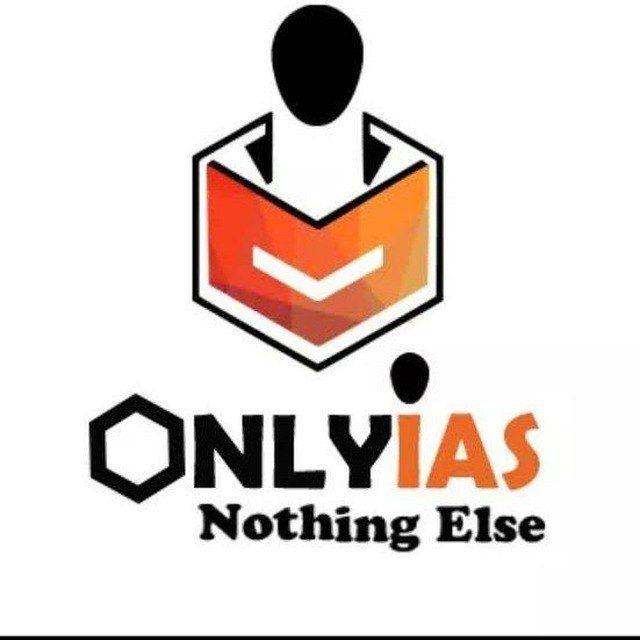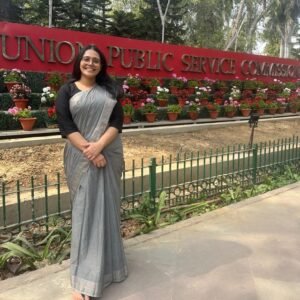
OnlyIAS PSIR
This channel is to help aspirants of PSIR optional in their optional preparation.
Recent Posts
Various Scholars views on India's Nuclear Policy
» George Perkovich has extensively analyzed India's No First Use (NFU) policy. He argues that India's NFU policy is a strategic decision reflecting its desire for international recognition as a responsible nuclear state. Perkovich also questions the operational credibility of NFU in a crisis situation, suggesting that the actual use of nuclear weapons might deviate from peacetime declarations.
» Vipin Narang (Posturing for Peace): He suggests that India's nuclear policy, including its NFU stance and strategy of massive retaliation, is designed more for international signaling and less for operational war-fighting. Narang argues that this strategy helps maintain peace but may face challenges in deterring more limited nuclear use by adversaries.
» Scott D. Sagan (The Evolution of Minimum Credible Deterrence): He suggests that this policy is dynamic and subject to change based on perceived threats and technological advancements. Sagan raises concerns about the stability of South Asia’s nuclear environment as India, Pakistan, and China continue to enhance their nuclear capabilities.
» Kanti Bajpai (Civil-Military Relations in Nuclear Policy): He emphasizes the importance of robust civilian oversight to prevent unauthorized or accidental use of nuclear weapons, particularly given the complex security environment in South Asia.
» Harsh V. Pant (NPT and India’s Nuclear Exceptionalism): He argues that India’s refusal to sign the NPT stems from its view of the treaty as discriminatory. Pant also discusses how India's position on the NPT has evolved with its growing international stature and nuclear agreements with various countries.
» Stephen P. Cohen (Stability-Instability Paradox in South Asia): Cohen has delved into the security dynamics of the South Asian region, particularly focusing on the India-Pakistan nuclear rivalry. He discusses the stability-instability paradox, where nuclear weapons create stability at the strategic level but may encourage lower-level conflicts.
» C. Raja Mohan (India’s Strategic Autonomy in a Multipolar World): He argues that India's nuclear capability is integral to maintaining strategic autonomy in a rapidly changing multipolar world, where power dynamics are increasingly fluid.
» Achin Vanaik (Ethical Critique of Nuclear Deterrence): He questions the ethical justifications of maintaining nuclear arsenals, arguing that the potential humanitarian catastrophe caused by nuclear weapons use far outweighs any perceived strategic benefits.
» Rajesh Basrur (Minimum Deterrence and Strategic Restraint): He argues that India's approach is deeply rooted in a philosophy of strategic restraint and a desire to avoid arms races. Basrur suggests that this approach reflects India's historical and cultural inclinations towards non-aggression.
» Bharat Karnad (India's Nuclear Realism): He often critiques India's NFU policy as being too idealistic and argues for a more assertive nuclear stance to counter regional threats, particularly from China and Pakistan. Karnad advocates for a larger nuclear arsenal and more flexible use policies.
» Manpreet Sethi (Global Nuclear Norms and India’s Role): She argues that while India remains outside the NPT framework, it has a responsible nuclear track record and contributes to the global non-proliferation regime. Sethi emphasizes India's role in shaping a global nuclear order that balances disarmament, non-proliferation, and the peaceful use of nuclear energy.
» Sumit Ganguly (Deterrence and Crisis Management in South Asia): He analyzes how nuclear weapons have influenced crisis management and conflict dynamics in South Asia. Ganguly's work highlights the risks of escalation in Indo-Pakistani crises and the importance of effective communication and diplomacy to manage these risks.
Get more such insightful posts about PSIR: Click here
» George Perkovich has extensively analyzed India's No First Use (NFU) policy. He argues that India's NFU policy is a strategic decision reflecting its desire for international recognition as a responsible nuclear state. Perkovich also questions the operational credibility of NFU in a crisis situation, suggesting that the actual use of nuclear weapons might deviate from peacetime declarations.
» Vipin Narang (Posturing for Peace): He suggests that India's nuclear policy, including its NFU stance and strategy of massive retaliation, is designed more for international signaling and less for operational war-fighting. Narang argues that this strategy helps maintain peace but may face challenges in deterring more limited nuclear use by adversaries.
» Scott D. Sagan (The Evolution of Minimum Credible Deterrence): He suggests that this policy is dynamic and subject to change based on perceived threats and technological advancements. Sagan raises concerns about the stability of South Asia’s nuclear environment as India, Pakistan, and China continue to enhance their nuclear capabilities.
» Kanti Bajpai (Civil-Military Relations in Nuclear Policy): He emphasizes the importance of robust civilian oversight to prevent unauthorized or accidental use of nuclear weapons, particularly given the complex security environment in South Asia.
» Harsh V. Pant (NPT and India’s Nuclear Exceptionalism): He argues that India’s refusal to sign the NPT stems from its view of the treaty as discriminatory. Pant also discusses how India's position on the NPT has evolved with its growing international stature and nuclear agreements with various countries.
» Stephen P. Cohen (Stability-Instability Paradox in South Asia): Cohen has delved into the security dynamics of the South Asian region, particularly focusing on the India-Pakistan nuclear rivalry. He discusses the stability-instability paradox, where nuclear weapons create stability at the strategic level but may encourage lower-level conflicts.
» C. Raja Mohan (India’s Strategic Autonomy in a Multipolar World): He argues that India's nuclear capability is integral to maintaining strategic autonomy in a rapidly changing multipolar world, where power dynamics are increasingly fluid.
» Achin Vanaik (Ethical Critique of Nuclear Deterrence): He questions the ethical justifications of maintaining nuclear arsenals, arguing that the potential humanitarian catastrophe caused by nuclear weapons use far outweighs any perceived strategic benefits.
» Rajesh Basrur (Minimum Deterrence and Strategic Restraint): He argues that India's approach is deeply rooted in a philosophy of strategic restraint and a desire to avoid arms races. Basrur suggests that this approach reflects India's historical and cultural inclinations towards non-aggression.
» Bharat Karnad (India's Nuclear Realism): He often critiques India's NFU policy as being too idealistic and argues for a more assertive nuclear stance to counter regional threats, particularly from China and Pakistan. Karnad advocates for a larger nuclear arsenal and more flexible use policies.
» Manpreet Sethi (Global Nuclear Norms and India’s Role): She argues that while India remains outside the NPT framework, it has a responsible nuclear track record and contributes to the global non-proliferation regime. Sethi emphasizes India's role in shaping a global nuclear order that balances disarmament, non-proliferation, and the peaceful use of nuclear energy.
» Sumit Ganguly (Deterrence and Crisis Management in South Asia): He analyzes how nuclear weapons have influenced crisis management and conflict dynamics in South Asia. Ganguly's work highlights the risks of escalation in Indo-Pakistani crises and the importance of effective communication and diplomacy to manage these risks.
Get more such insightful posts about PSIR: Click here
Free Daily Mains Answer Writing Practice though PYQ's for UPSC 2024
1) Daily 2 questions with Model answer from PYQ based on the topic as per the schedule
2) Weekly Tests – 14 Weekly Tests
3) 4 Full Length tests
4) 4 Essay Tests
5) Video discussion of all tests
Valid till 30th September 2024
Fees: Rs 0/-(Free)
To join visit: click here
1) Daily 2 questions with Model answer from PYQ based on the topic as per the schedule
2) Weekly Tests – 14 Weekly Tests
3) 4 Full Length tests
4) 4 Essay Tests
5) Video discussion of all tests
Valid till 30th September 2024
Fees: Rs 0/-(Free)
To join visit: click here
This post is very important because we mostly do not remember ki kis scholar ko kaha quote karna hai IR me, with the help of this post, we will get the idea ki konsa scholar kis subject par baat karte hai, toh agar answer likhte waqt hame yaad nahi aaya toh at least ham topic ke hisab se scholar quote kar sakte hai
Save this post for future reference, this post I guarantee will help u a lot in IR answers of PSIR.
Get more such insightful posts about PSIR: Click here
Save this post for future reference, this post I guarantee will help u a lot in IR answers of PSIR.
Get more such insightful posts about PSIR: Click here
Some Prominent Scholars who writes on IR and their area of focus C. Raja Mohan: A contemporary Indian scholar in international relations, Mohan focuses on India's evolving foreign policy in the context of global changes. He argues for a more proactive Indian…
Some Prominent Scholars who writes on IR and their area of focus
C. Raja Mohan: A contemporary Indian scholar in international relations, Mohan focuses on India's evolving foreign policy in the context of global changes. Heargues for a more proactive Indian role in the international arena, especially in terms of balancing the rise of China and engaging more deeply with Western powers.
Srinath Raghavan: Raghavan's work provides a historical perspective on India's foreign policy. He delves into how India's strategic and military decisions have been shaped by its historical experiences, particularly its colonial past and its role in the non-aligned movement.
Kanti Bajpai: Bajpai's work primarily revolves around security and strategic studies within the context of South Asian politics. He offers insights into India's security policies, nuclear doctrine, and its relationships with neighboring countries, especially Pakistan and China.
Sumit Ganguly: Specializing in South Asian security and political issues, Ganguly's work critically analyzes India's foreign policy post-Cold War. He explores India's transition from a non-aligned state to a more pragmatic and strategic player on the global stage.
Amitav Acharya: Acharya's theories focus on the idea of a multiplex world, where power is more diffused, and regional organizations play a significant role. He argues that India's foreign policy is increasingly influenced by its regional dynamics, especially within the context of the Association of Southeast Asian Nations (ASEAN) and its own regional ambitions.
Deepa Ollapally: Ollapally's work centers on the domestic-regional linkages in India's foreign policy. She examines how India's domestic politics, particularly its democratic nature and internal diversity, influence its foreign policy decisions and its approach to regional issues.
Happymon Jacob: Jacob focuses on India-Pakistan relations, particularly in the context of the Kashmir conflict. His work provides a deep understanding of the complexities and dynamics of India's security policies concerning its rivalry with Pakistan.
Rajesh Rajagopalan: Specializing in nuclear politics and international security, Rajagopalan's work explores India's nuclear doctrine and its impact on global non-proliferation efforts. He also examines the strategic implications of India's nuclear capabilities for its regional and global standing.
C. Raja Mohan and S. Paul Kapur: Their collaborative work looks into the U.S.-India strategic partnership. They analyze the evolving dynamics of this relationship, especially in the context of China's rise and the changing geopolitical landscape in the Indo-Pacific region.
Tanvi Madan: Madan's work focuses on India-U.S. relations and India's foreign policy strategy toward the West. She delves into how India navigates its relationship with the United States, balancing between strategic cooperation and maintaining its strategic autonomy.
Harsh V. Pant: Pant's research covers India's foreign and security policies, with a particular focus on its relationships with major powers like the United States, China, and Russia. He explores how India adapts its foreign policy in response to global power shifts.
T.V. Paul: Paul's work in international relations theory brings in the concept of a "soft balancing" strategy. He applies this to India's approach, where it uses international institutions, economic strategies, and diplomatic engagements as tools to counterbalance dominant powers without directly confronting them militarily.
Shivshankar Menon: A former Indian diplomat and National Security Advisor, Menon's writings offer an insider's perspective on India's foreign policy decision-making process. He provides insights into India's strategic culture and its approach to major international issues.
Get more such insightful posts about PSIR: Click here
C. Raja Mohan: A contemporary Indian scholar in international relations, Mohan focuses on India's evolving foreign policy in the context of global changes. Heargues for a more proactive Indian role in the international arena, especially in terms of balancing the rise of China and engaging more deeply with Western powers.
Srinath Raghavan: Raghavan's work provides a historical perspective on India's foreign policy. He delves into how India's strategic and military decisions have been shaped by its historical experiences, particularly its colonial past and its role in the non-aligned movement.
Kanti Bajpai: Bajpai's work primarily revolves around security and strategic studies within the context of South Asian politics. He offers insights into India's security policies, nuclear doctrine, and its relationships with neighboring countries, especially Pakistan and China.
Sumit Ganguly: Specializing in South Asian security and political issues, Ganguly's work critically analyzes India's foreign policy post-Cold War. He explores India's transition from a non-aligned state to a more pragmatic and strategic player on the global stage.
Amitav Acharya: Acharya's theories focus on the idea of a multiplex world, where power is more diffused, and regional organizations play a significant role. He argues that India's foreign policy is increasingly influenced by its regional dynamics, especially within the context of the Association of Southeast Asian Nations (ASEAN) and its own regional ambitions.
Deepa Ollapally: Ollapally's work centers on the domestic-regional linkages in India's foreign policy. She examines how India's domestic politics, particularly its democratic nature and internal diversity, influence its foreign policy decisions and its approach to regional issues.
Happymon Jacob: Jacob focuses on India-Pakistan relations, particularly in the context of the Kashmir conflict. His work provides a deep understanding of the complexities and dynamics of India's security policies concerning its rivalry with Pakistan.
Rajesh Rajagopalan: Specializing in nuclear politics and international security, Rajagopalan's work explores India's nuclear doctrine and its impact on global non-proliferation efforts. He also examines the strategic implications of India's nuclear capabilities for its regional and global standing.
C. Raja Mohan and S. Paul Kapur: Their collaborative work looks into the U.S.-India strategic partnership. They analyze the evolving dynamics of this relationship, especially in the context of China's rise and the changing geopolitical landscape in the Indo-Pacific region.
Tanvi Madan: Madan's work focuses on India-U.S. relations and India's foreign policy strategy toward the West. She delves into how India navigates its relationship with the United States, balancing between strategic cooperation and maintaining its strategic autonomy.
Harsh V. Pant: Pant's research covers India's foreign and security policies, with a particular focus on its relationships with major powers like the United States, China, and Russia. He explores how India adapts its foreign policy in response to global power shifts.
T.V. Paul: Paul's work in international relations theory brings in the concept of a "soft balancing" strategy. He applies this to India's approach, where it uses international institutions, economic strategies, and diplomatic engagements as tools to counterbalance dominant powers without directly confronting them militarily.
Shivshankar Menon: A former Indian diplomat and National Security Advisor, Menon's writings offer an insider's perspective on India's foreign policy decision-making process. He provides insights into India's strategic culture and its approach to major international issues.
Get more such insightful posts about PSIR: Click here
PSIR Paper 1 and 2 Solution - UPSC 2023
PSIR Paper 1 Section A & B Solution UPSC 2023
To get PSIR Paper 2 UPSC 2023 Solution:Click here
To get PSIR Paper 2 UPSC 2023 Solution:Click here
EAM S Jaishankar's views on various aspect of Indian Foreign Policy
» Multipolar World: Jaishankar emphasizes India's role in a multipolar world. He advocates for a balanced approach in foreign policy, engaging with major powers while also strengthening relationships with neighboring countries and regional blocs.
» Strategic Autonomy: He frequently underscores the importance of maintaining strategic autonomy, making decisions based on India's interests rather than aligning exclusively with any major power bloc.
» Act East Policy: Jaishankar has been a strong proponent of India's Act East Policy, aiming to strengthen relationships with Southeast Asian countries, both economically and strategically, as a counterbalance to China's influence in the region.
» Indo-Pacific Region: He has articulated India's vision for the Indo-Pacific region, emphasizing the need for an open, inclusive, and rules-based order. This includes freedom of navigation and overflight, peaceful resolution of disputes, and respect for international law.
» China Relations: Jaishankar's tenure has seen a complex relationship with China, especially following border tensions. He advocates for a realistic approach, recognizing competition but also the necessity of engagement.
» U.S.-India Ties: He views the U.S.-India partnership as a significant aspect of India's foreign policy, focusing on deepening strategic and defense cooperation, while also navigating differences on issues like trade and immigration.
» Neighborhood First Policy: Jaishankar emphasizes the importance of strengthening ties with neighboring countries in South Asia, viewing regional stability and cooperation as critical to India's security and growth.
» Global Institutions: He often speaks about reforming global institutions, including the United Nations, to reflect contemporary global realities, advocating for greater representation for India and other emerging economies.
To know views of more scholars: Click here
» Multipolar World: Jaishankar emphasizes India's role in a multipolar world. He advocates for a balanced approach in foreign policy, engaging with major powers while also strengthening relationships with neighboring countries and regional blocs.
» Strategic Autonomy: He frequently underscores the importance of maintaining strategic autonomy, making decisions based on India's interests rather than aligning exclusively with any major power bloc.
» Act East Policy: Jaishankar has been a strong proponent of India's Act East Policy, aiming to strengthen relationships with Southeast Asian countries, both economically and strategically, as a counterbalance to China's influence in the region.
» Indo-Pacific Region: He has articulated India's vision for the Indo-Pacific region, emphasizing the need for an open, inclusive, and rules-based order. This includes freedom of navigation and overflight, peaceful resolution of disputes, and respect for international law.
» China Relations: Jaishankar's tenure has seen a complex relationship with China, especially following border tensions. He advocates for a realistic approach, recognizing competition but also the necessity of engagement.
» U.S.-India Ties: He views the U.S.-India partnership as a significant aspect of India's foreign policy, focusing on deepening strategic and defense cooperation, while also navigating differences on issues like trade and immigration.
» Neighborhood First Policy: Jaishankar emphasizes the importance of strengthening ties with neighboring countries in South Asia, viewing regional stability and cooperation as critical to India's security and growth.
» Global Institutions: He often speaks about reforming global institutions, including the United Nations, to reflect contemporary global realities, advocating for greater representation for India and other emerging economies.
To know views of more scholars: Click here
Contemporary Global Concerns: Democracy, Human Rights, Environment, Gender Justice, Terrorism, Nuclear Proliferation.
PSIR Paper 2 Section A
Get all handouts of PSIR: Click here
PSIR Paper 2 Section A
Get all handouts of PSIR: Click here
Thematic analysis of UPSC PYQ's Essay
» UPSC Essay's asked from 2016 to 2023
» Crux of Essay
» Theme and Repetition of Essay
» Overall demand of Essay
This document provides you ultimate analysis and deep understanding of Essay PYQ's.
Click here to get more documents related to Essay
» UPSC Essay's asked from 2016 to 2023
» Crux of Essay
» Theme and Repetition of Essay
» Overall demand of Essay
This document provides you ultimate analysis and deep understanding of Essay PYQ's.
Click here to get more documents related to Essay
For regular PSIR bulletin updates : Click here
To get handouts of remaining topics: Click here





